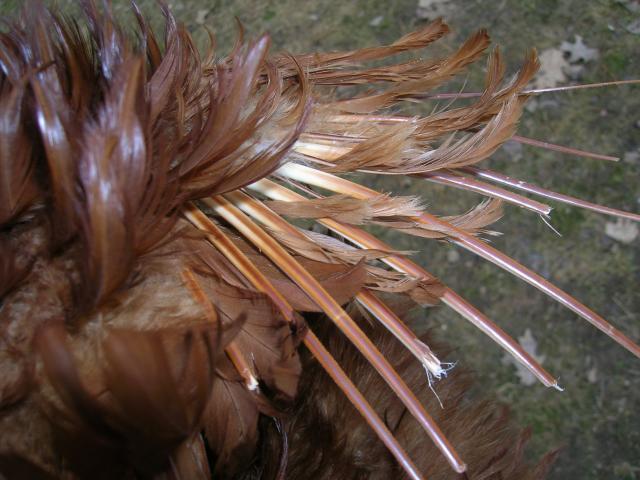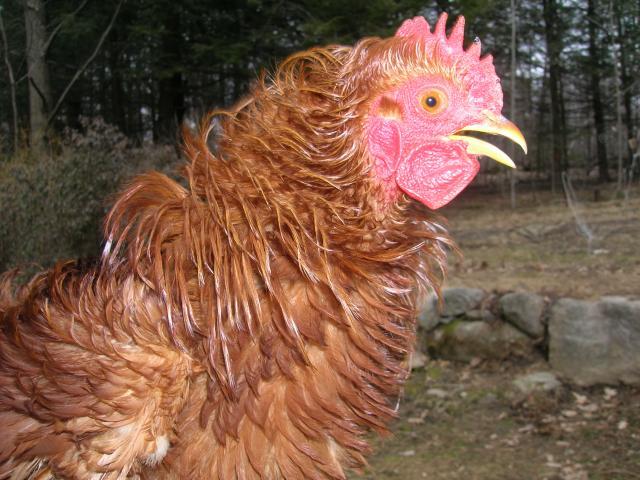I have hatched so far 7 chicks from my frizzle roo and non-frizzle hen (Cochins.) So far only one chick is showing frizzling. I know it may just be the odds, and I still have more to hatch, but I am wondering if anyone can talk about the modifier gene and how to tell if my hen is a carrier of it. Does anyone have pics of a heterozygote modified frizzle, or of the individual feathers of one?
Several of the chicks have what I would consider poor quality feathers (a bit "shaggy" but not curled) and I am wondering if they are modified frizzles. If so, will they be able to produce frizzled offspring, or will all future generations carry the modifying gene?
Or can someone point me to a good reference on this. Beyond the basic "there is a modifying gene that can make heterozygotes appear nearly normal."
Many thanks!!
Several of the chicks have what I would consider poor quality feathers (a bit "shaggy" but not curled) and I am wondering if they are modified frizzles. If so, will they be able to produce frizzled offspring, or will all future generations carry the modifying gene?
Or can someone point me to a good reference on this. Beyond the basic "there is a modifying gene that can make heterozygotes appear nearly normal."
Many thanks!!




